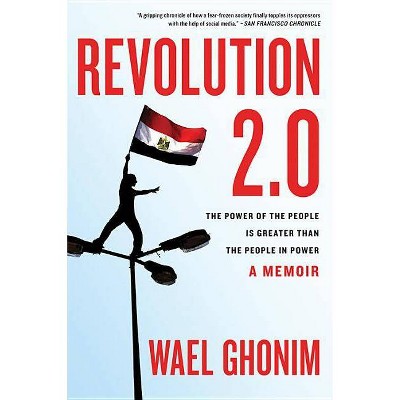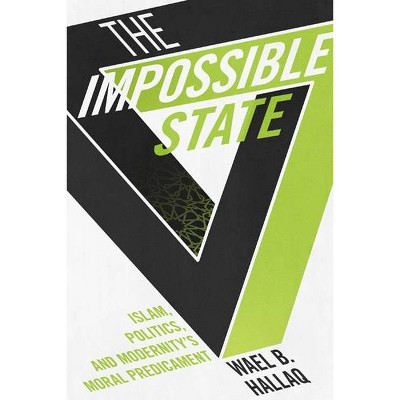Revolution 2.0 - by Wael Ghonim (Paperback)

Similar Products
Products of same category from the store
AllProduct info
<p/><br></br><p><b> About the Book </b></p></br></br>Wael Ghonim was a little-known, 30-year-old Google executive in the fall of 2010, when he anonymously launched a Facebook page to protest the death of one Egyptian man at the hands of security forces. In <i>Revolution 2.0</i> this key figure behind the Egyptian uprising tells the inside, riveting story of what happened, and presents lessons for all of us on how to unleash the power of crowds.<p/><br></br><p><b> Book Synopsis </b></p></br></br>"A gripping chronicle of how a fear-frozen society finally topples its oppressors with the help of social media." -- <i>San Francisco Chronicle</i> <p/>Wael Ghonim was a little-known, thirty-year-old Google executive in the summer of 2010 when he anonymously launched a Facebook page to protest the death of one Egyptian man at the hands of security forces. The page's following expanded quickly and moved from online protests to a nonconfrontational movement. On January 25, 2011, Tahrir Square resounded with calls for change. Yet just as the revolution began in earnest, Ghonim was captured and held for twelve days of brutal interrogation. After he was released, he gave a tearful speech on national television, and the protests grew more intense. Four days later, the president of Egypt was gone. <p/>In this riveting story, Ghonim takes us inside the movement and shares the keys to unleashing the power of crowds. In <i>Revolution 2.0</i>, we can all be heroes. <p/>"<i>Revolution 2.0</i> is an engaging read, and it offers a sharply detailed look from the inside of an uprising that owed almost as much to social media connections as it did to anti-Mubarak passions." -- <i>Los Angeles Times</i> <p/>"<i>Revolution 2.0</i> excels in chronicling the roiling tension in the months before the uprising, the careful organization required and the momentum it unleashed." -- NPR.org<p/><br></br><p><b> From the Back Cover </b></p></br></br>A gripping chronicle of how a fear-frozen society finally topples its oppressors with the help of social media. <i>San Francisco Chronicle</i> <br>Wael Ghonim was a little-known, thirty-year-old Google executive in the summer of 2010 when he anonymously launched a Facebook page to protest the death of one Egyptian man at the hands of security forces. The page s following expanded quickly and moved from online protests to a nonconfrontational movement. On January 25, 2011, Tahrir Square resounded with calls for change. Yet just as the revolution began in earnest, Ghonim was captured and held for twelve days of brutal interrogation. After he was released, he gave a tearful speech on national television, and the protests grew more intense. Four days later, the president of Egypt was gone. <br>In this riveting story, Ghonim takes us inside the movement and shares the keys to unleashing the power of crowds. In <i>Revolution 2.0</i>, we can all be heroes. <br> <i>Revolution 2.0</i> is an engaging read, and it offers a sharply detailed look from the inside of an uprising that owed almost as much to social media connections as it did to anti-Mubarak passions. <i>Los Angeles Times</i> <br> <i>Revolution 2.0</i> excels in chronicling the roiling tension in the months before the uprising, the careful organization required and the momentum it unleashed. NPR.org <p>"
Price History
Price Archive shows prices from various stores, lets you see history and find the cheapest. There is no actual sale on the website. For all support, inquiry and suggestion messagescommunication@pricearchive.us




















